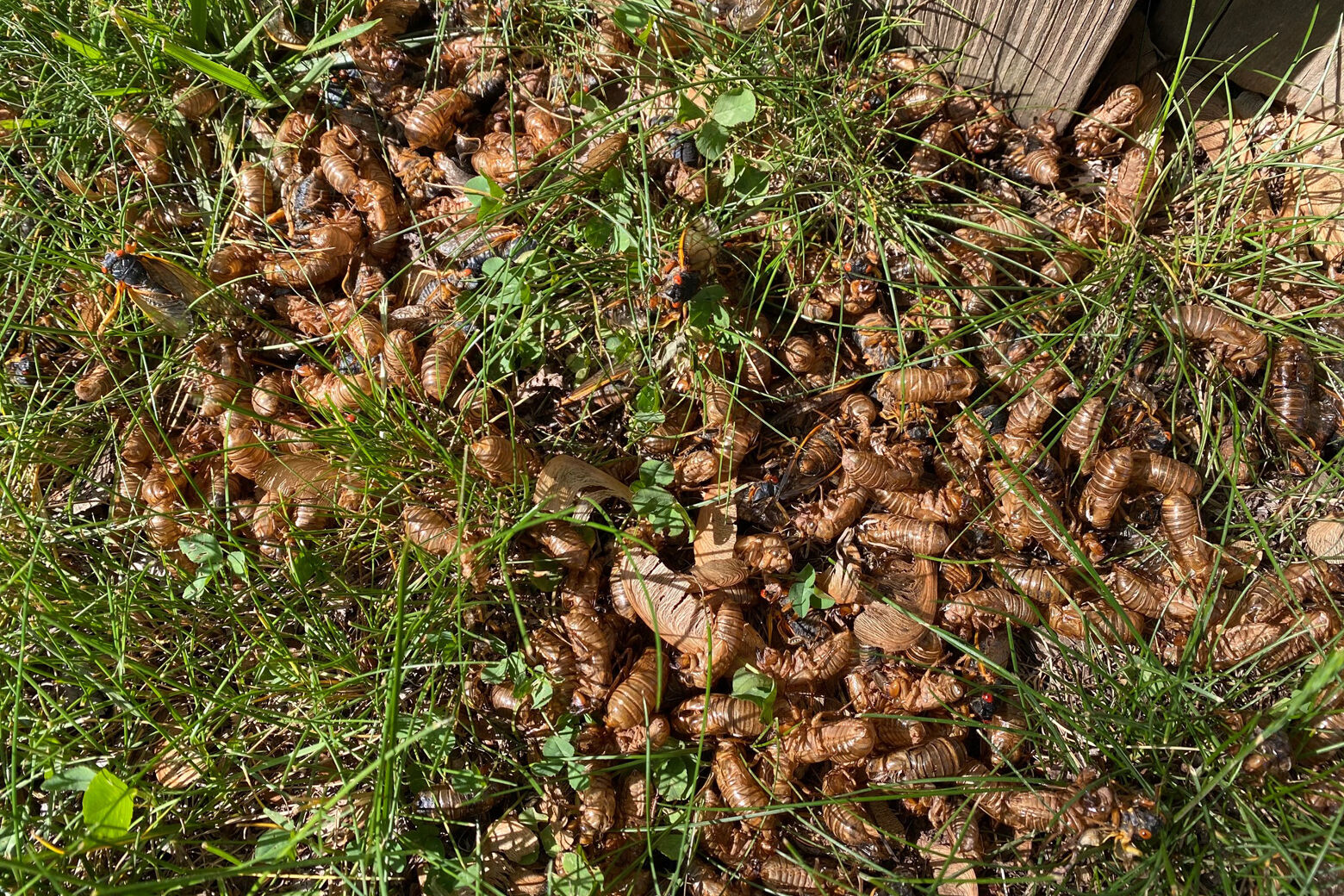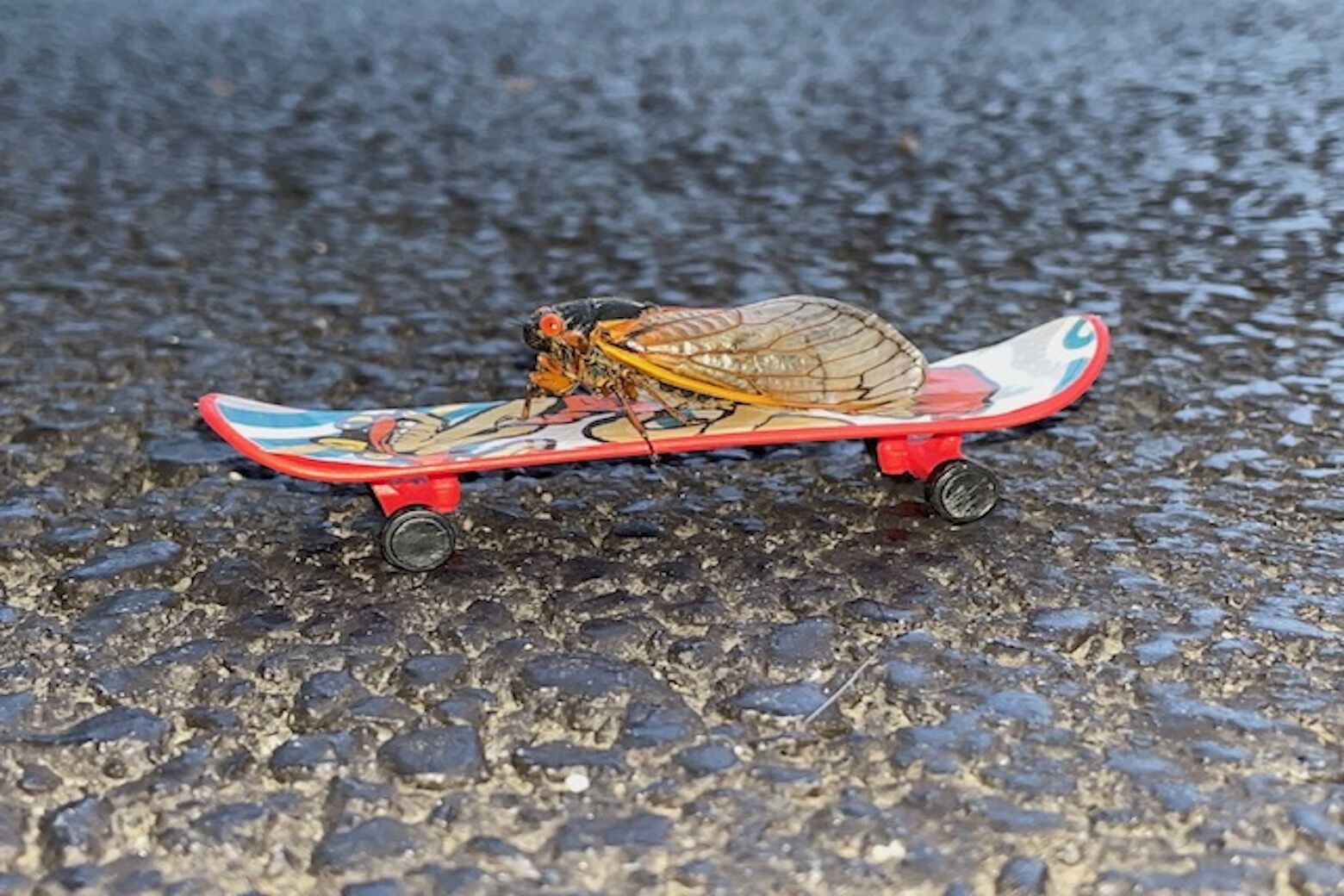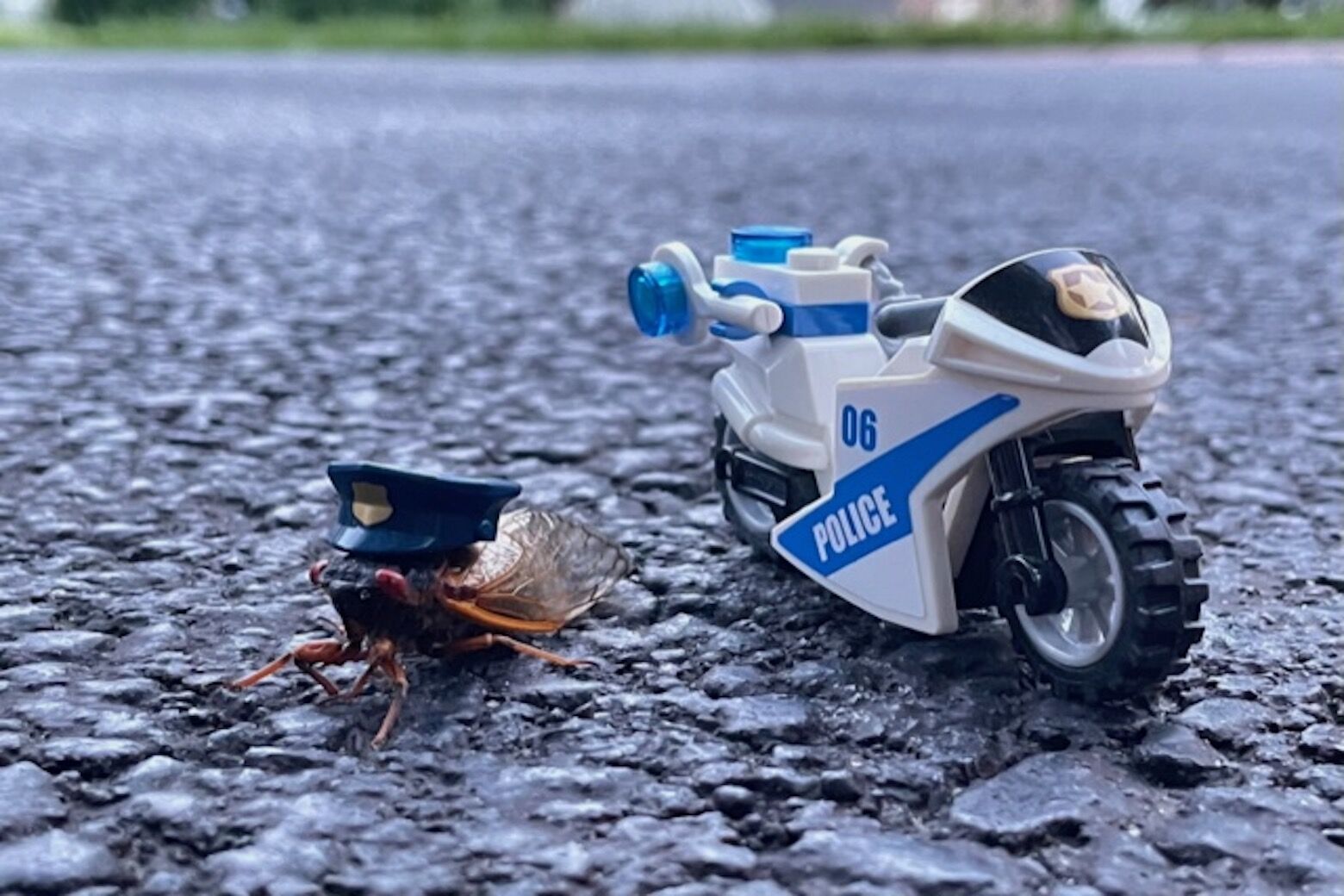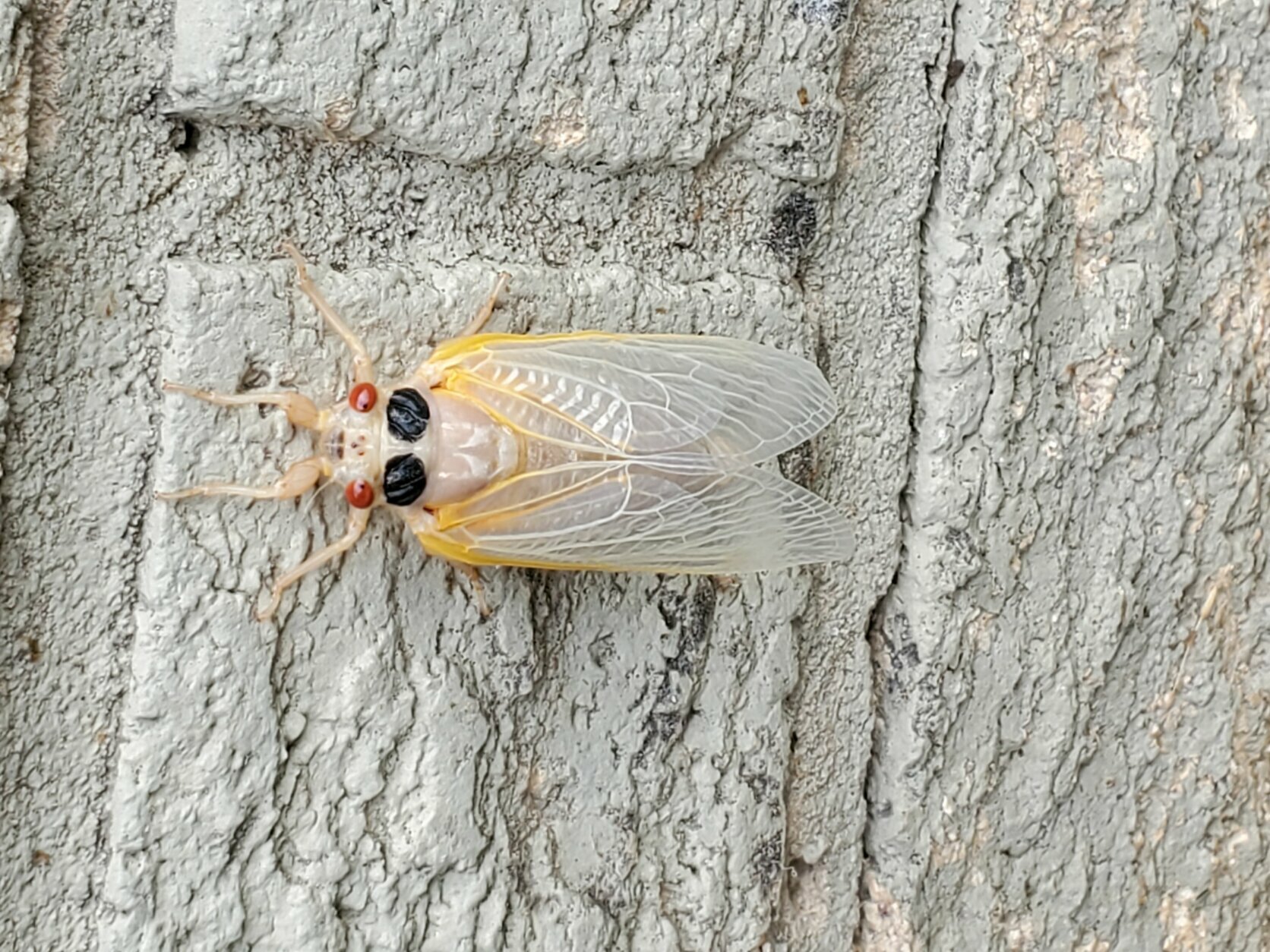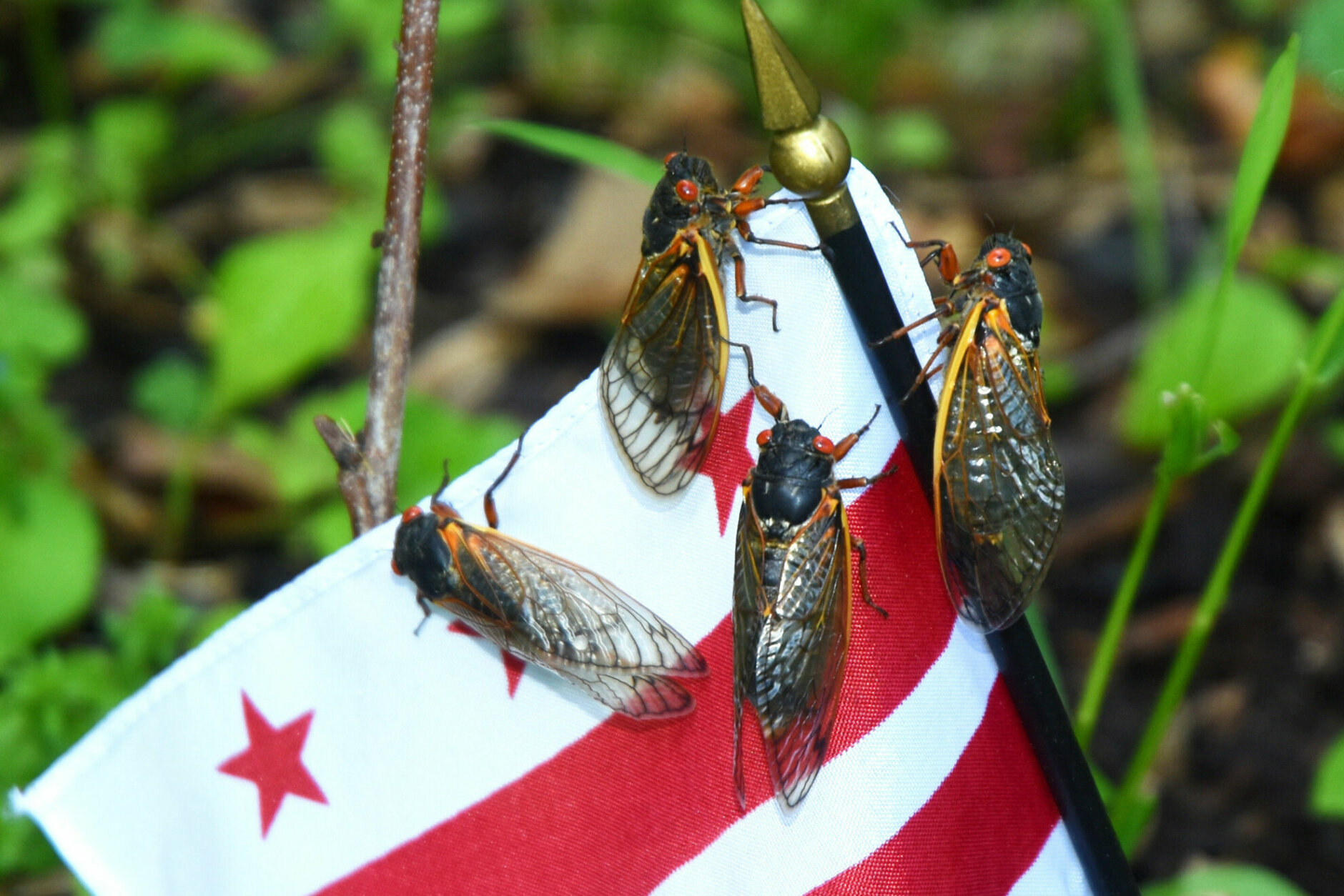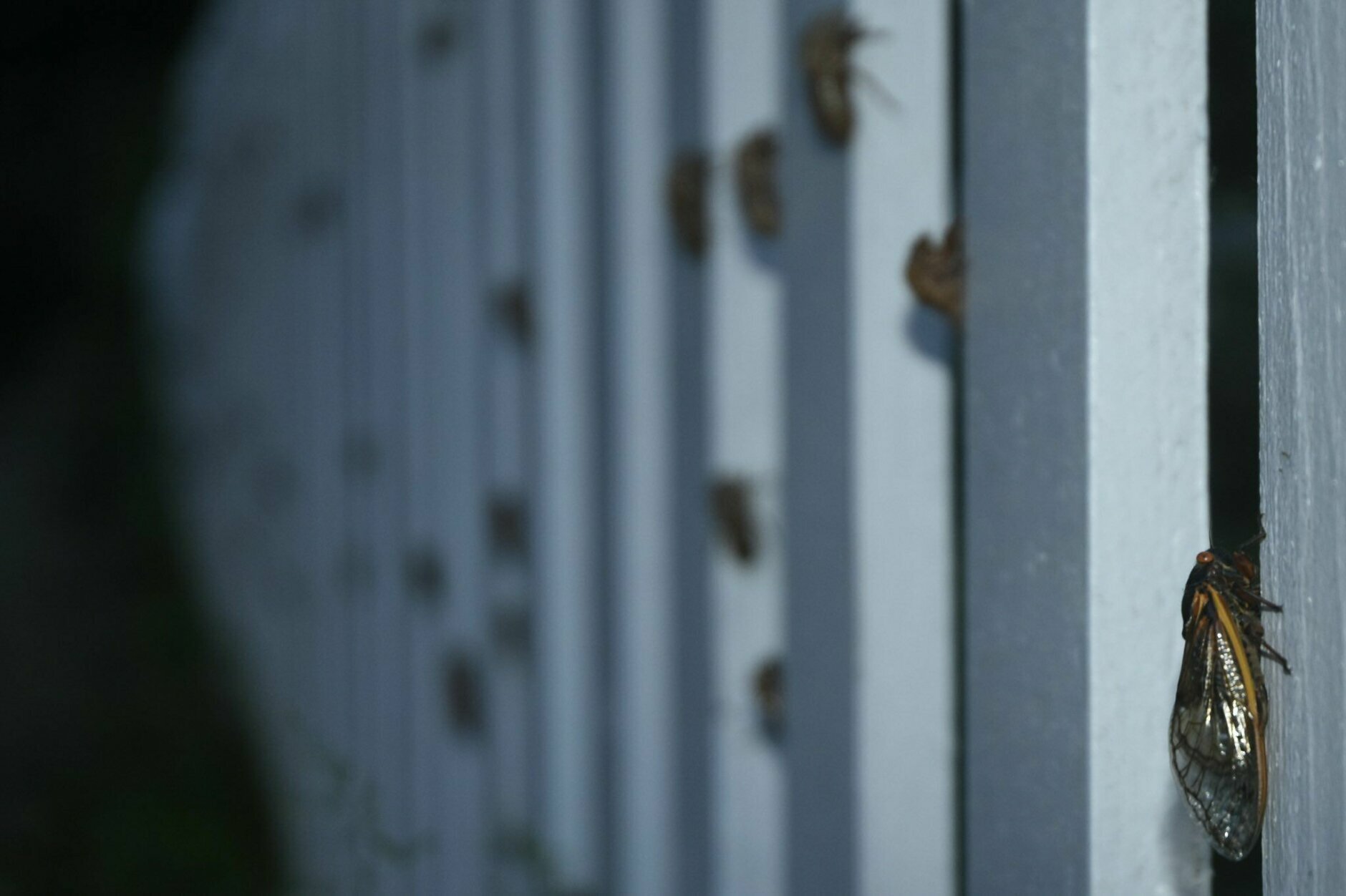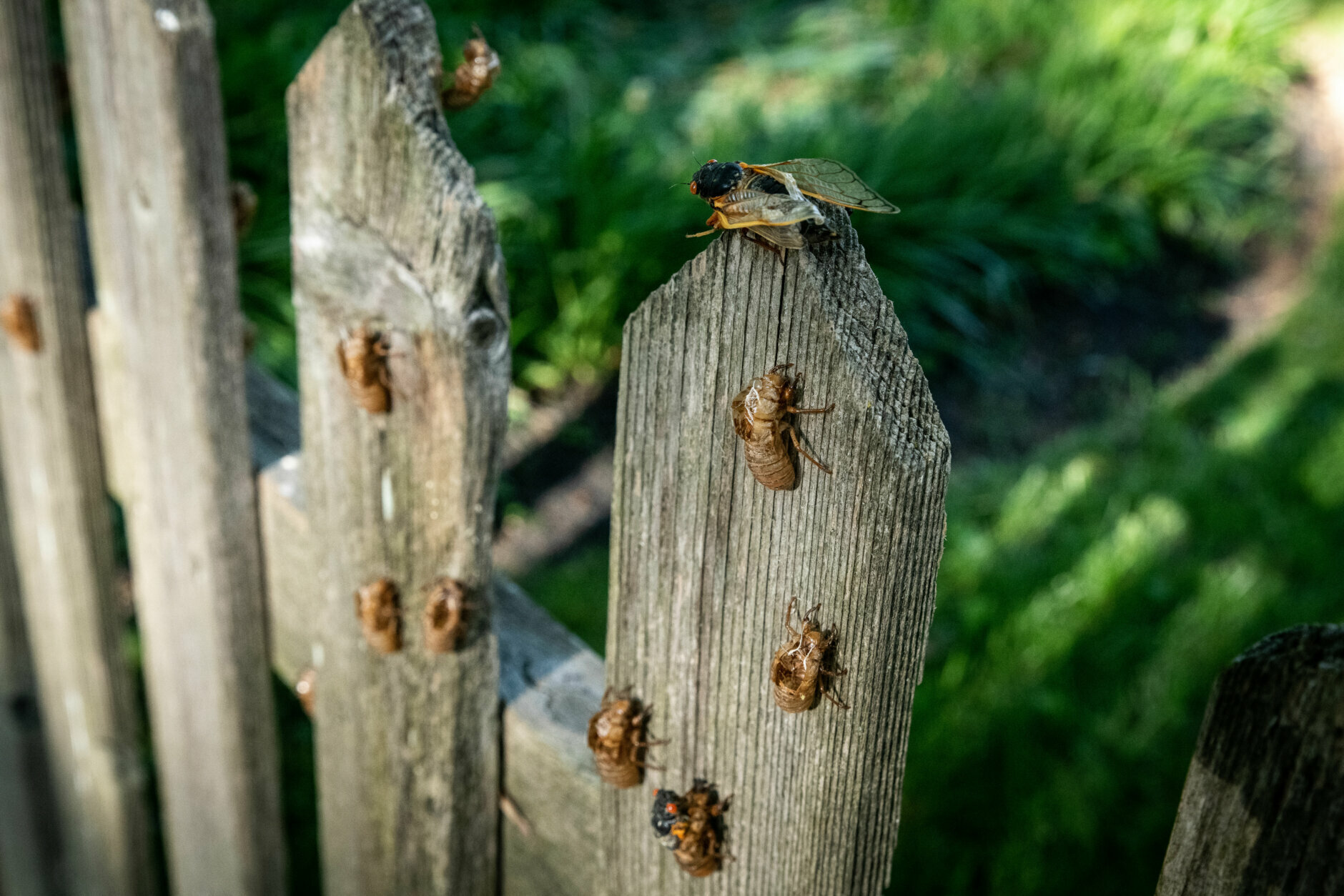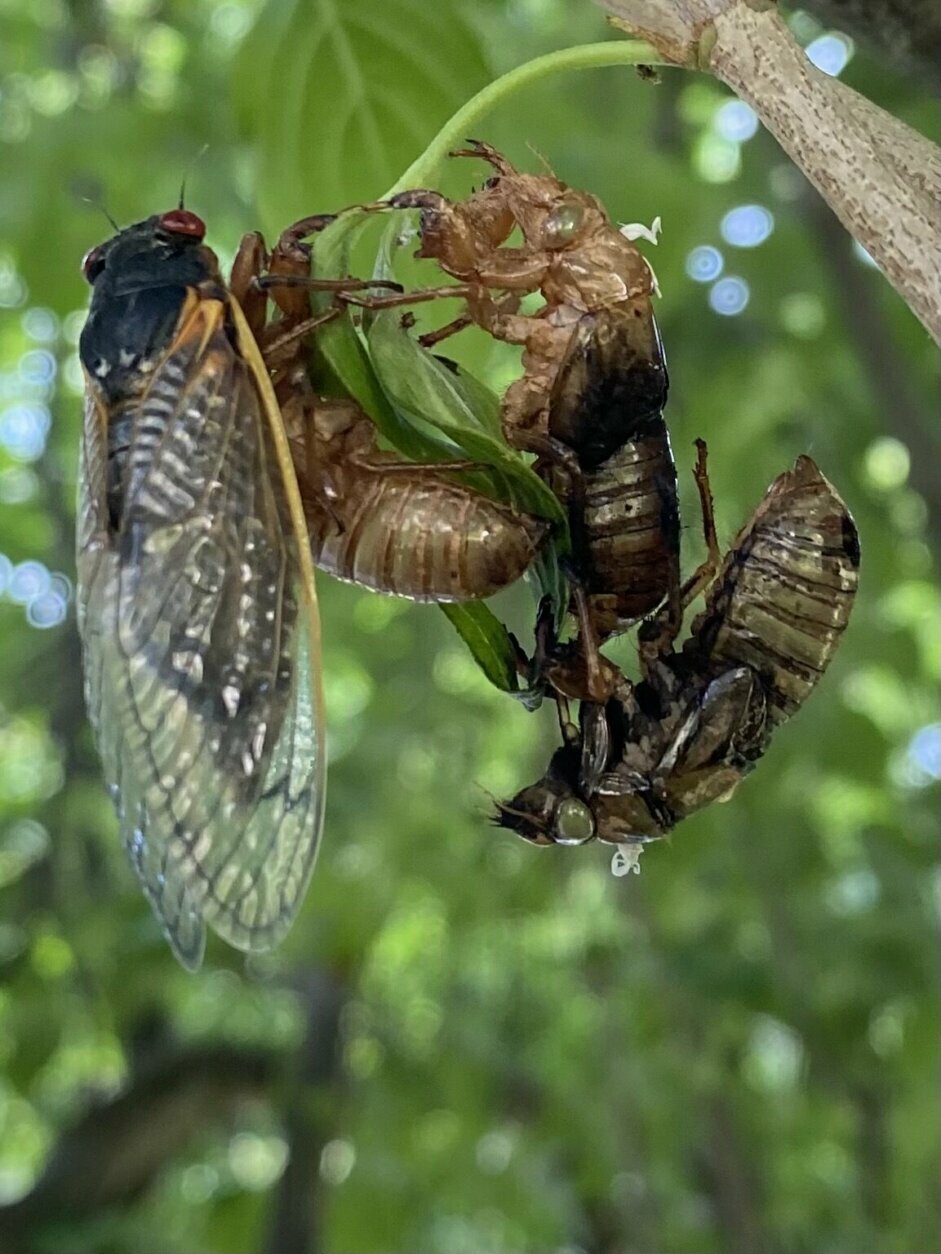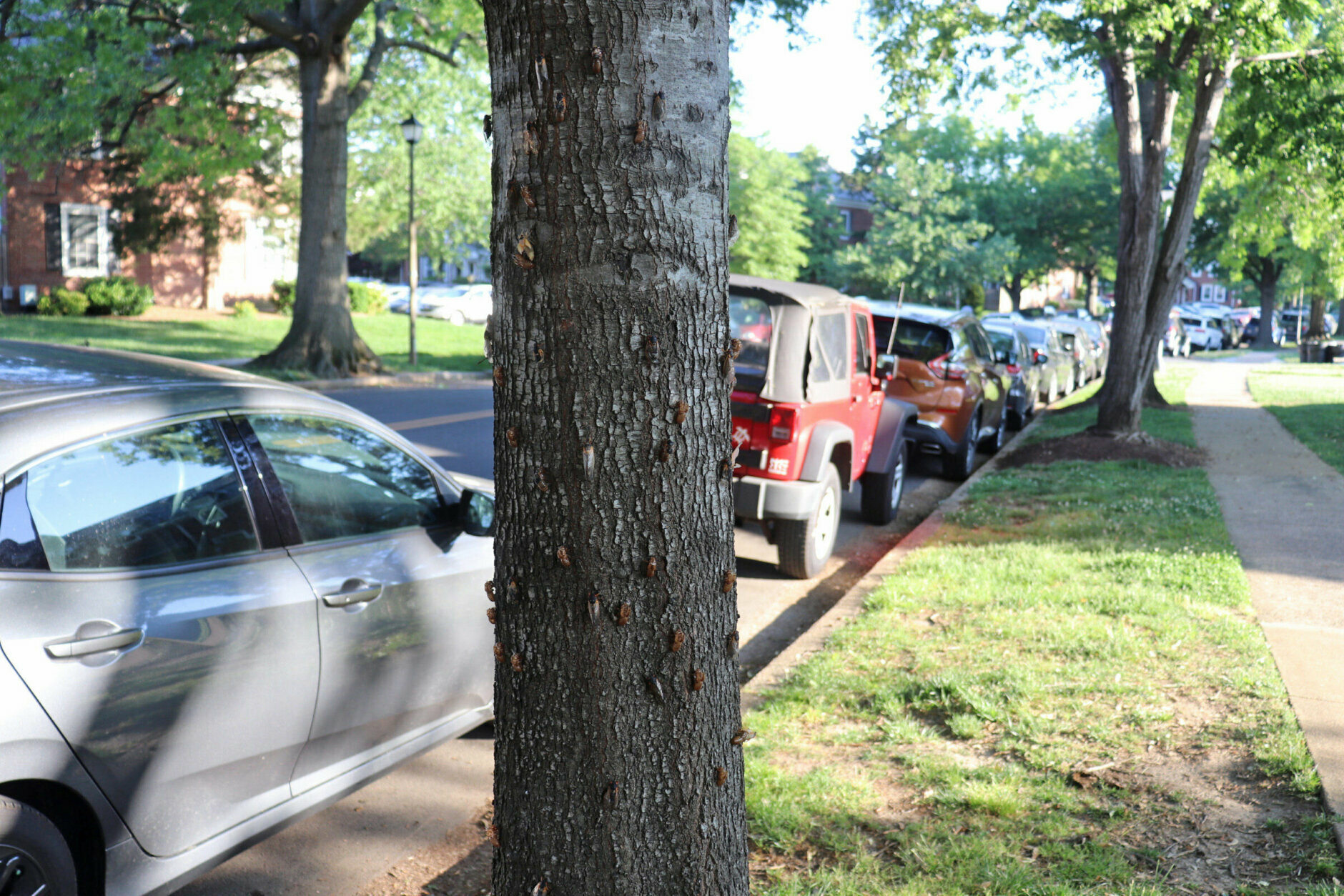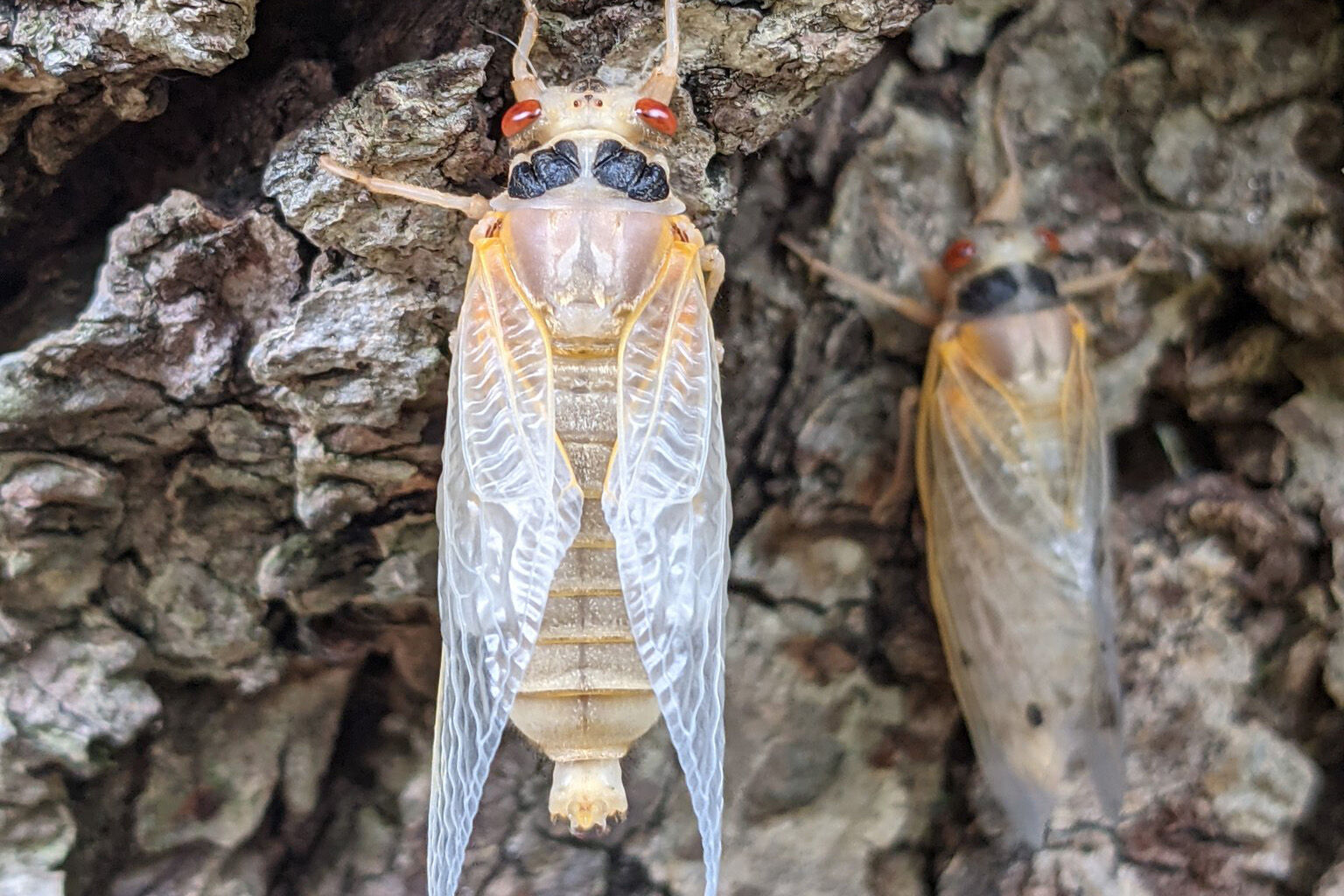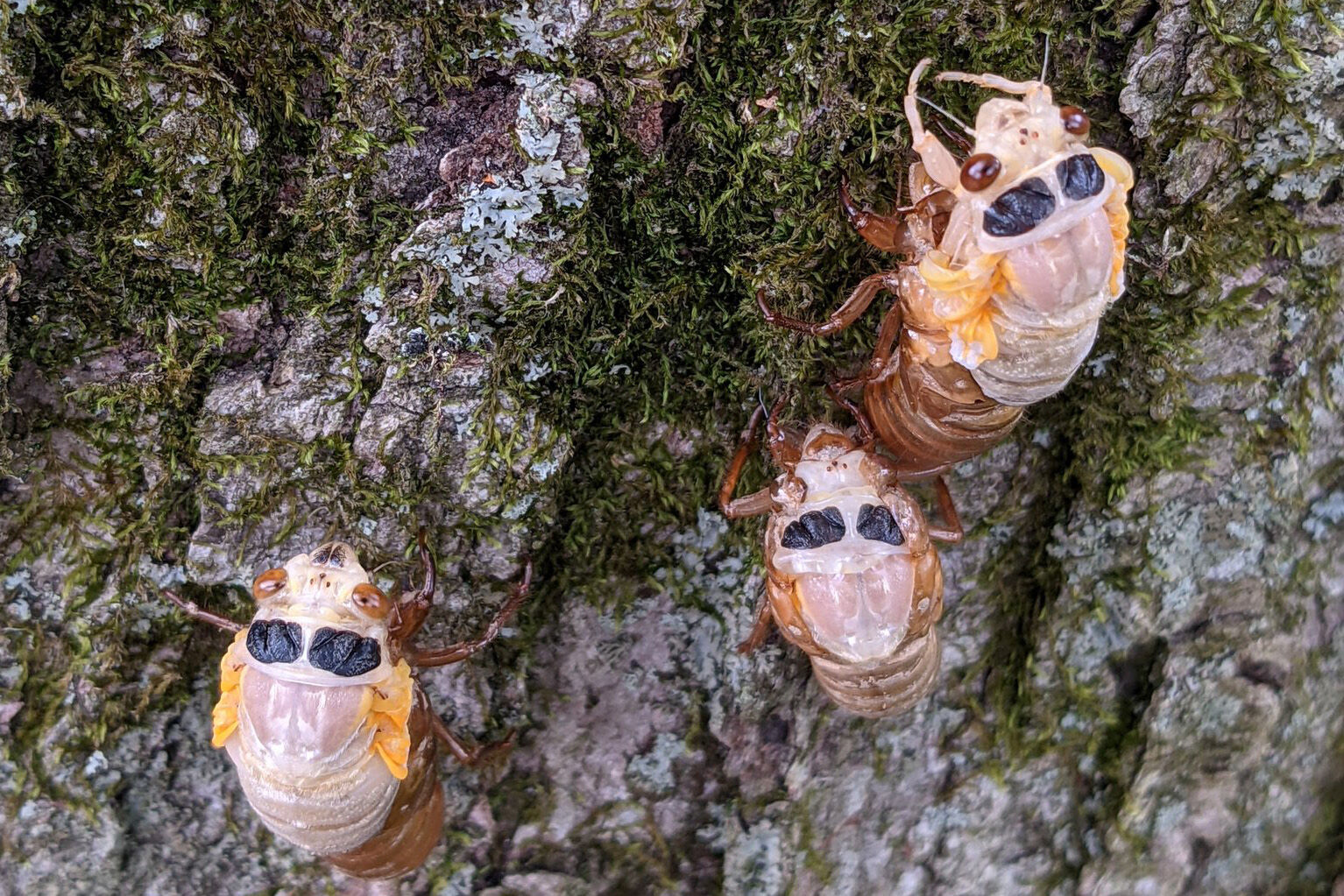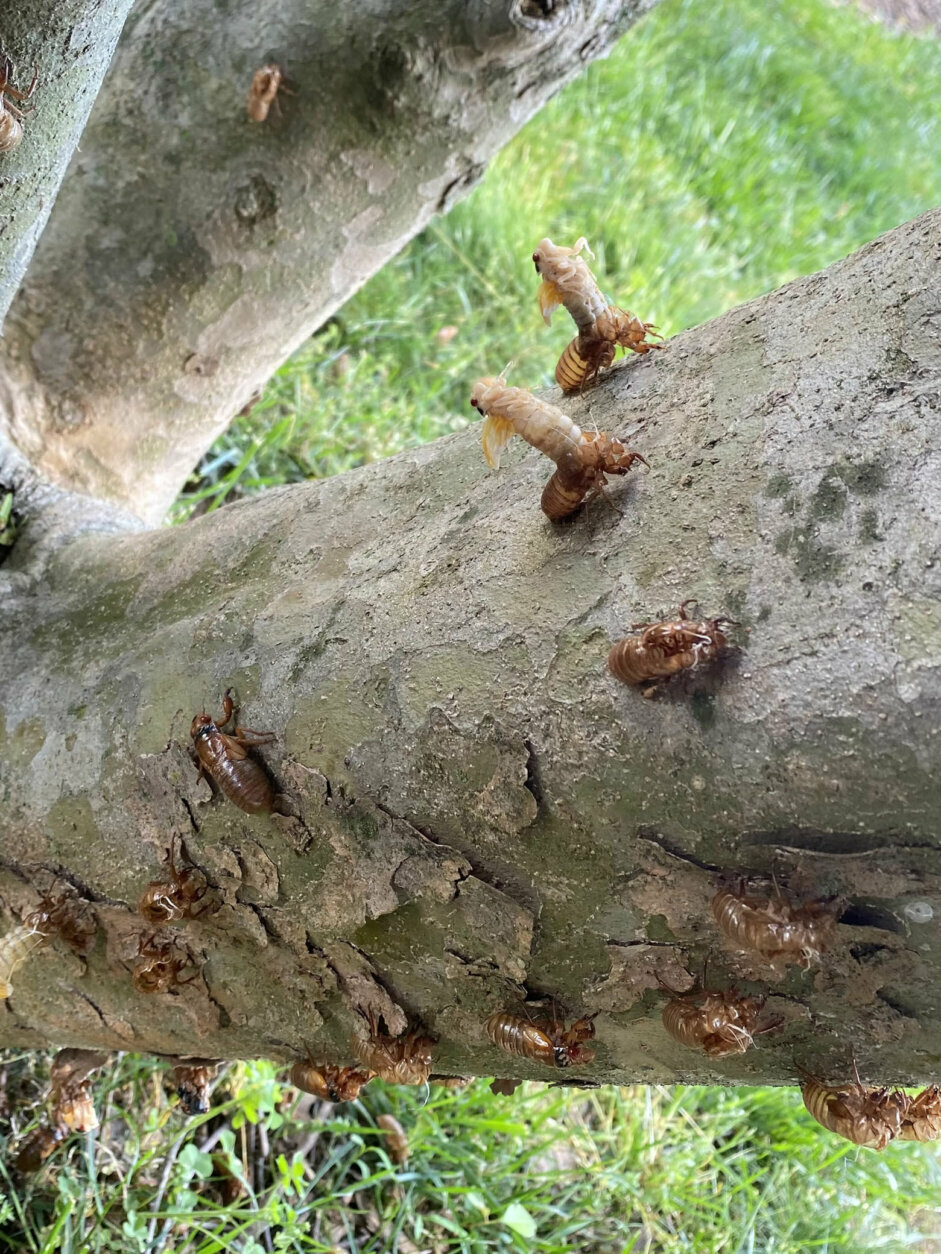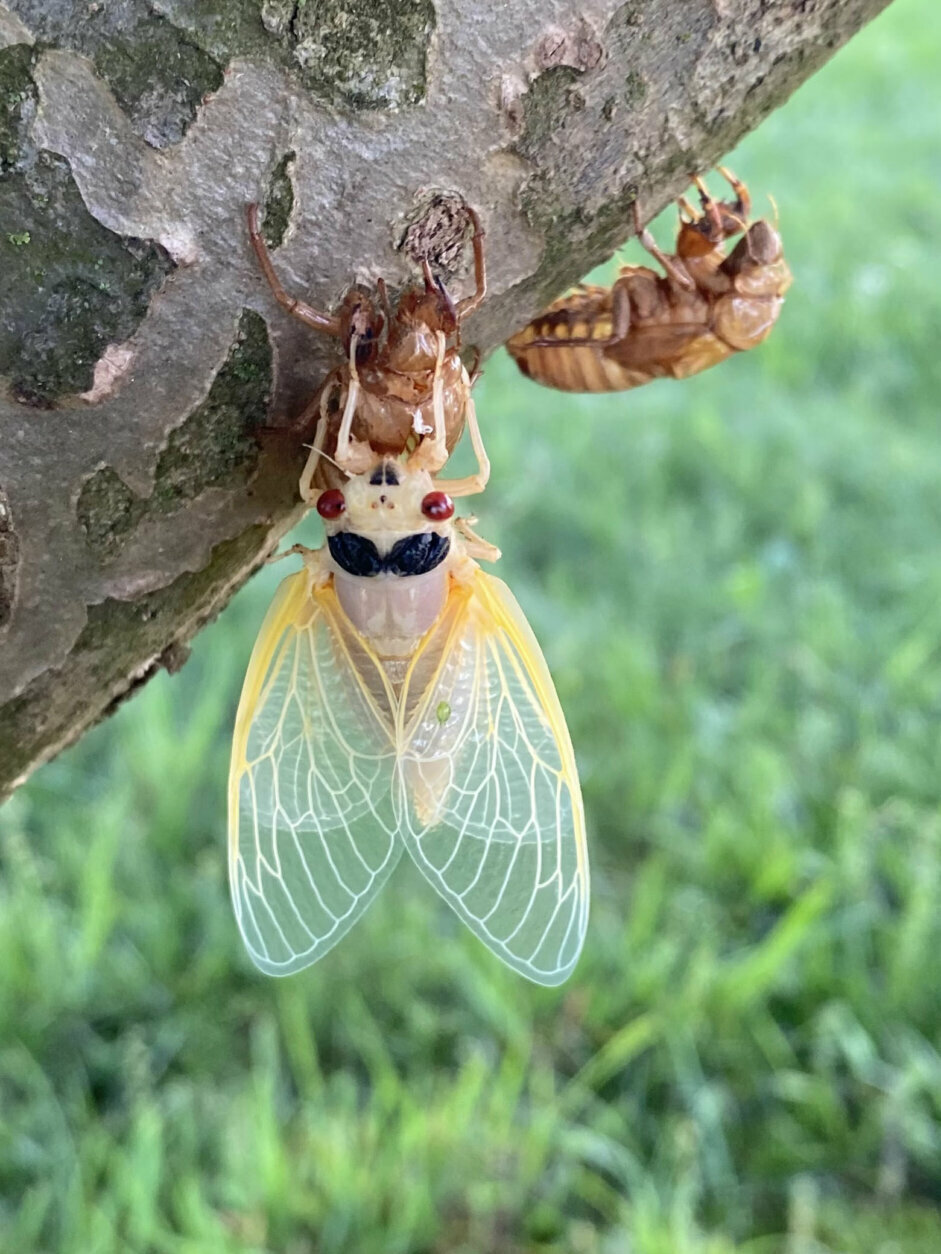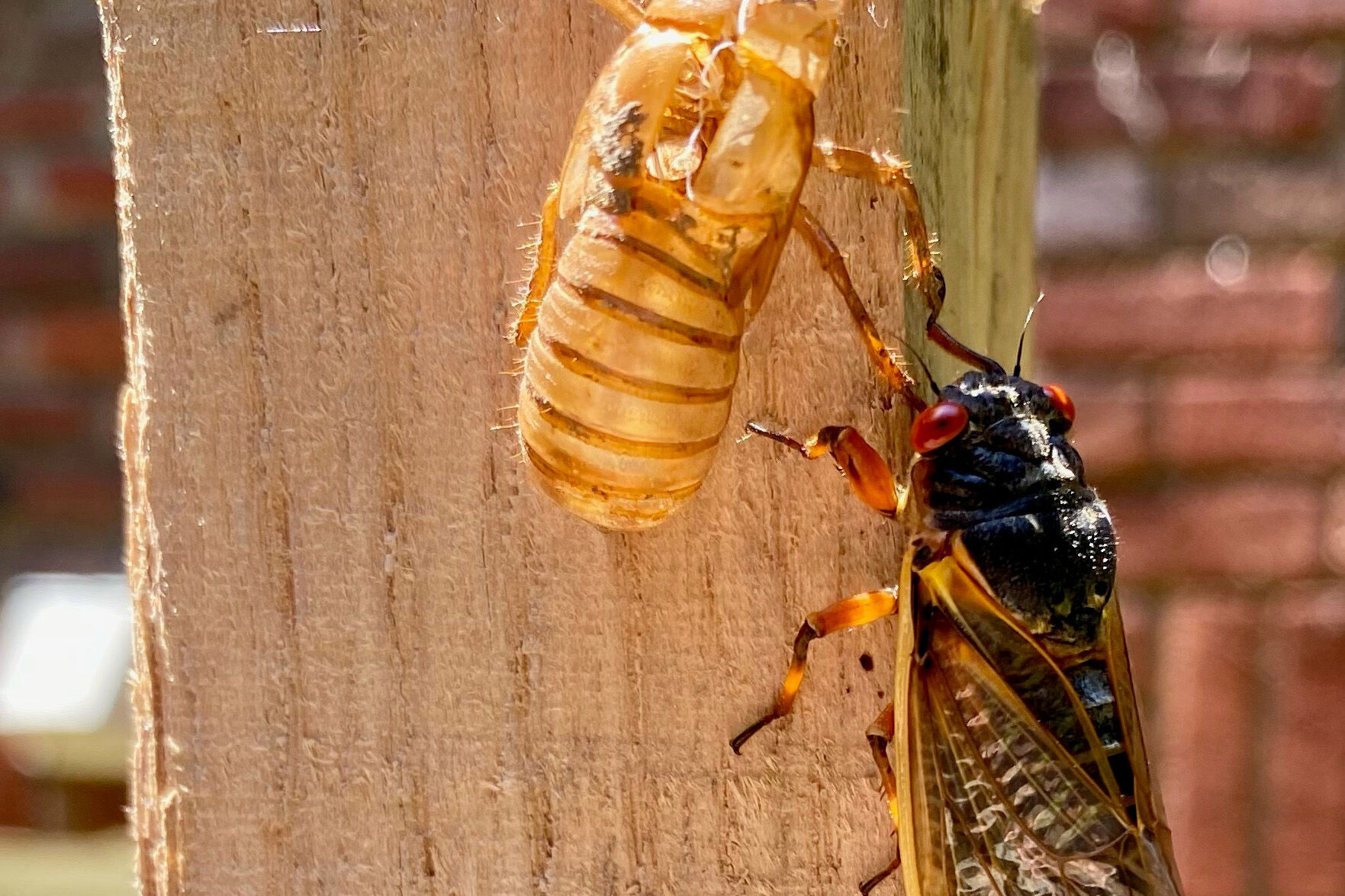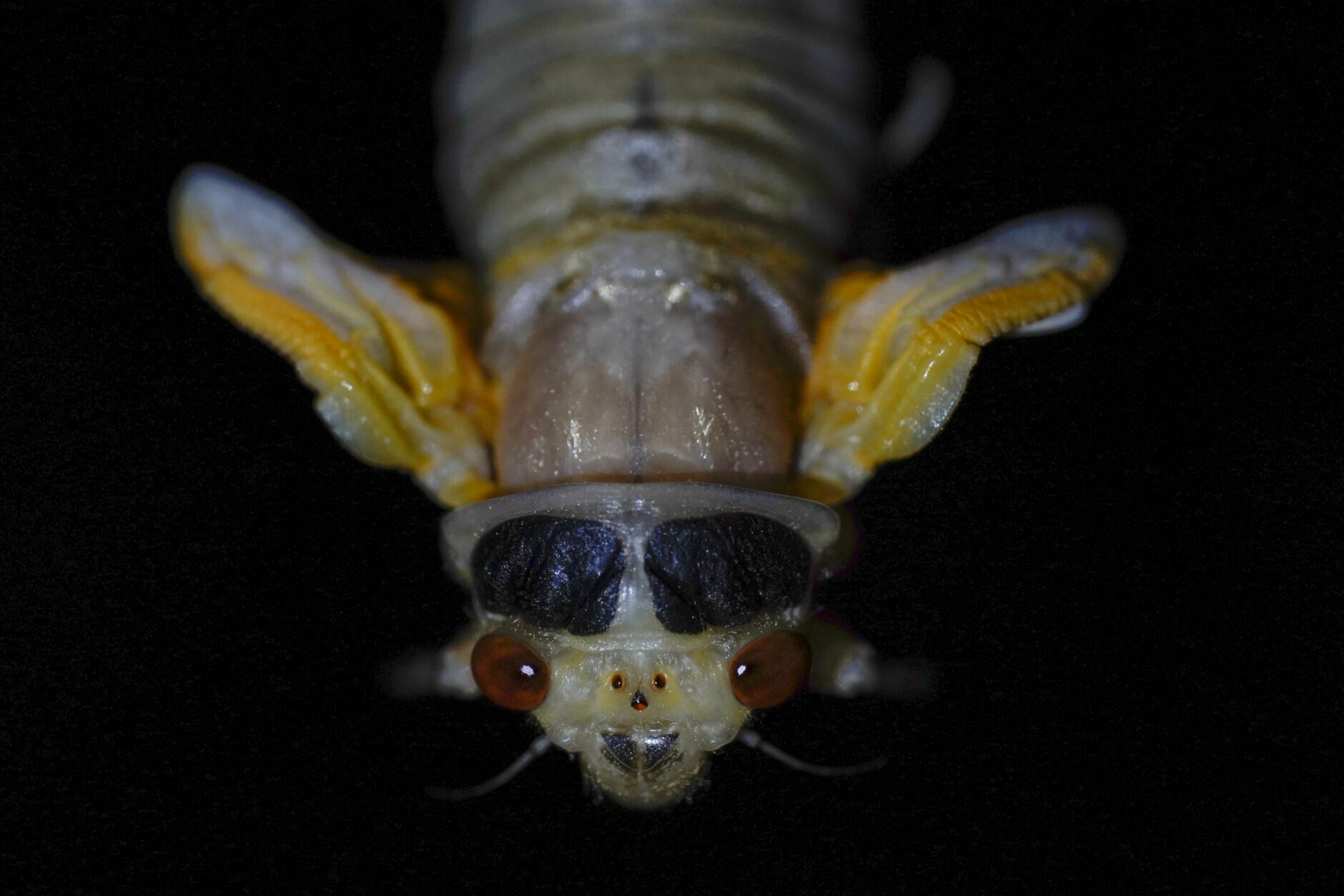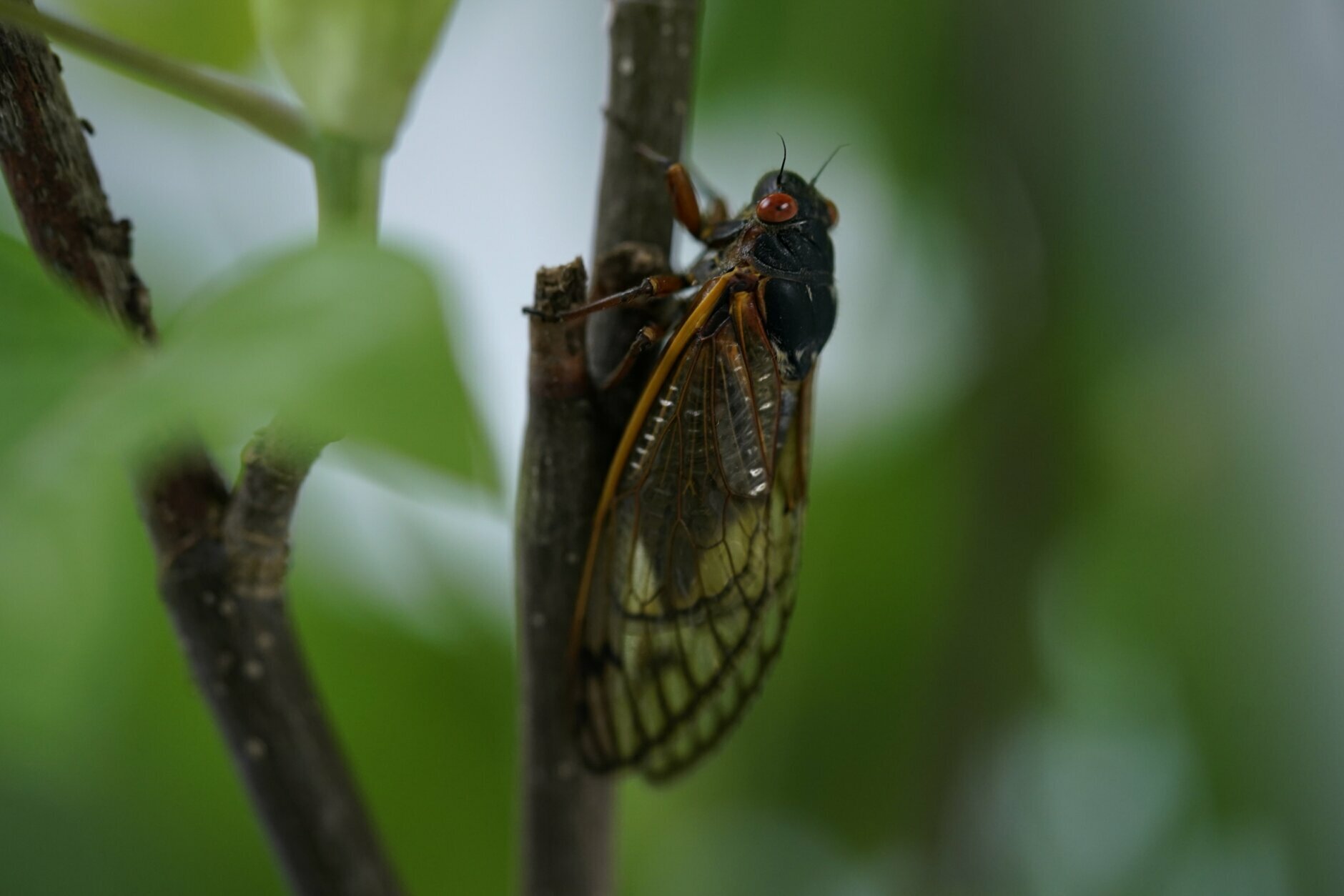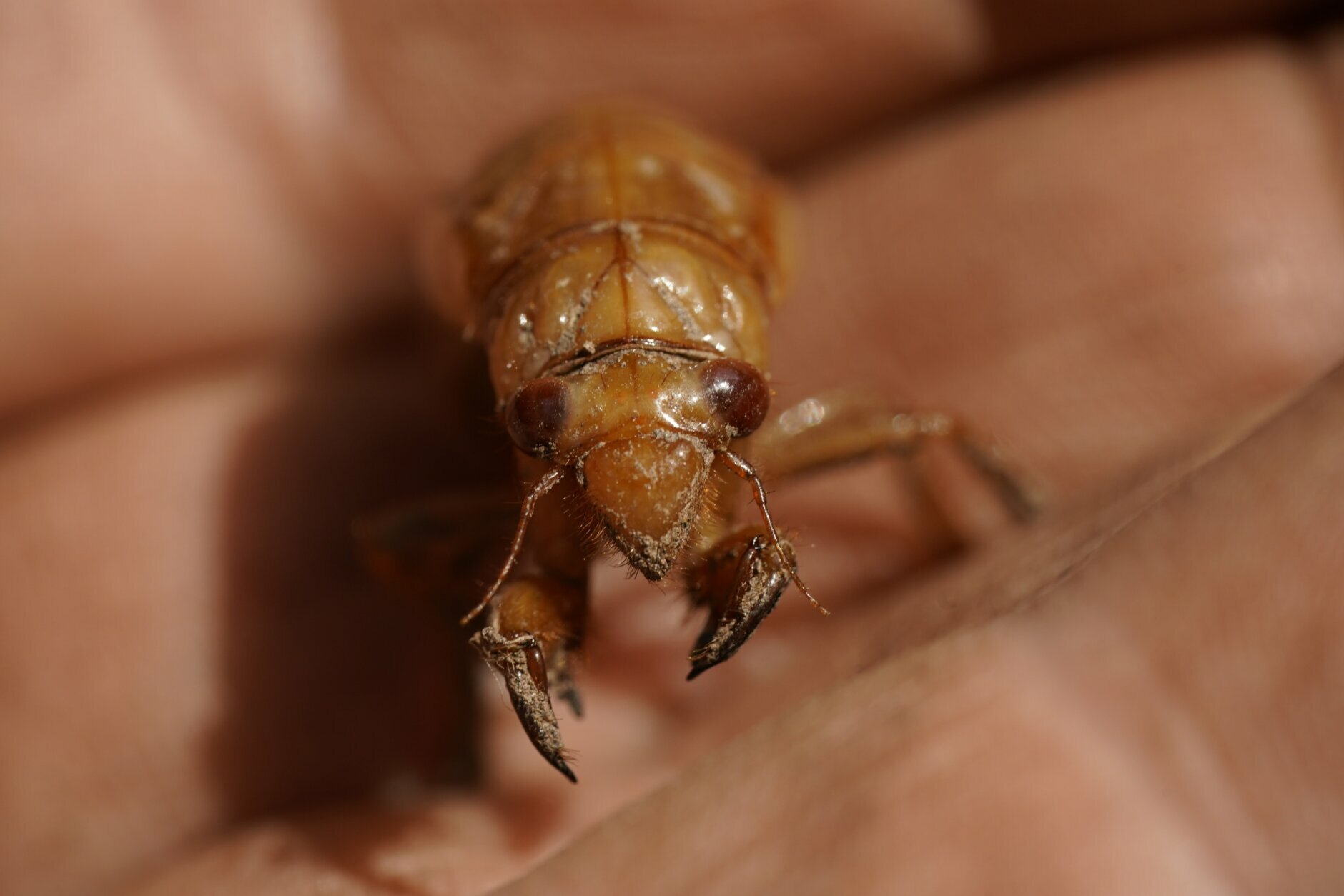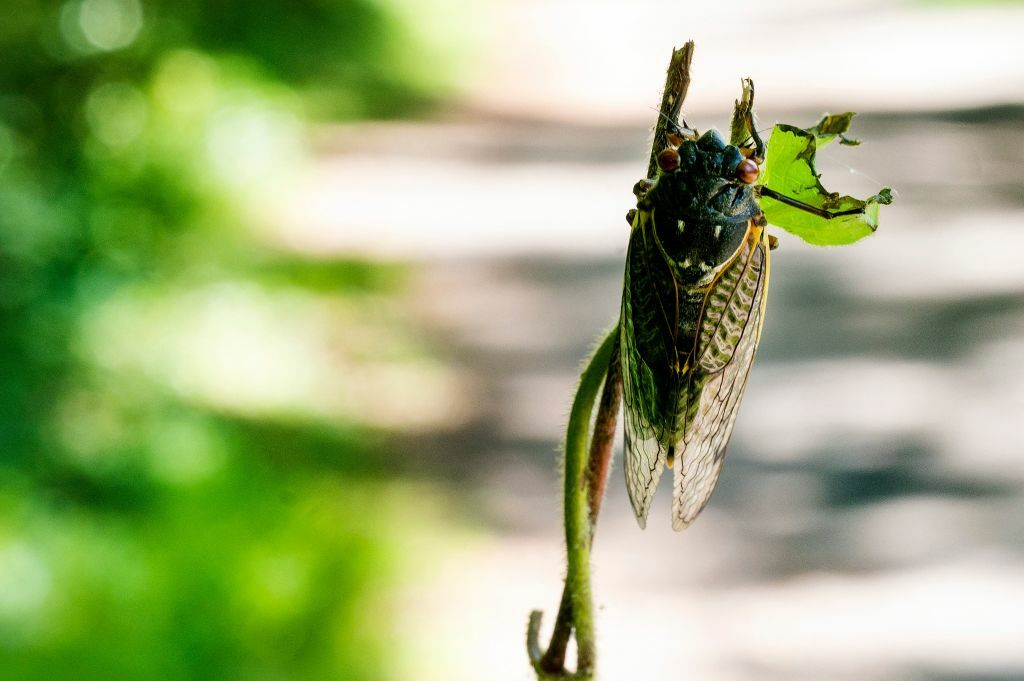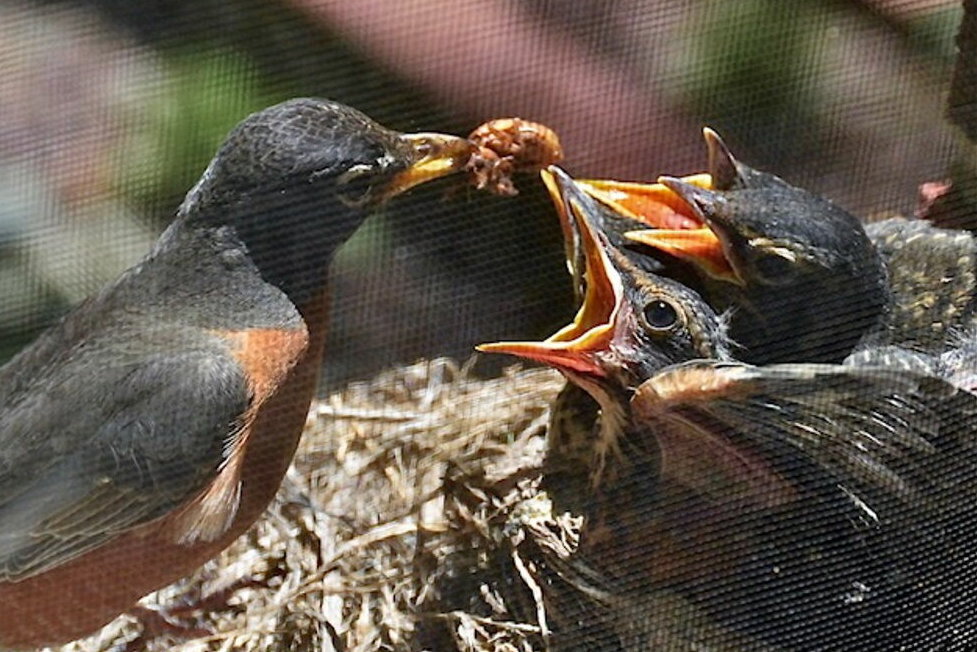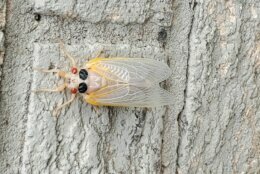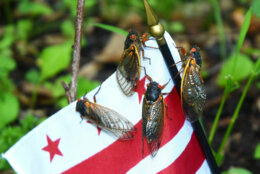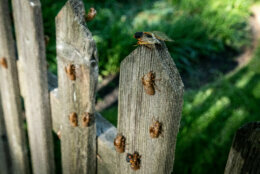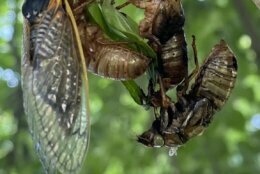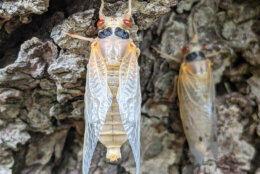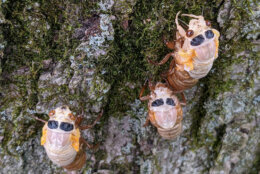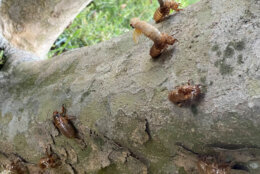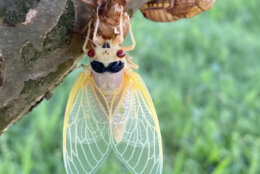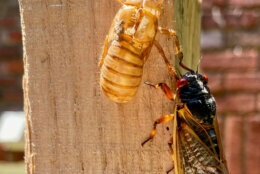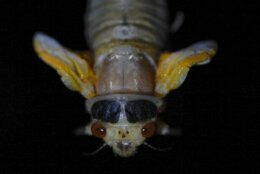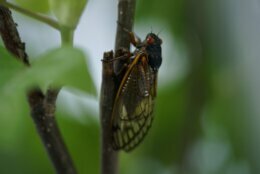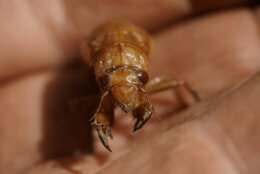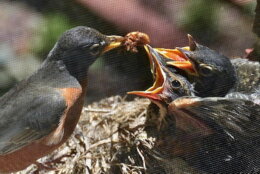While some in the National Capital region have yet to lay eyes on a single member of the 17-year Brood X and may be feeling cicada envy, Jeff Herge of Herndon, Virginia, invites you to look at his fence.
The #cicada are emerging heavily under the tree in my yard. pic.twitter.com/apKMIbpvgG
— Jeff Herge (@JeffHerge) May 18, 2021
“A lot of people are saying ‘I haven’t seen one yet,'” said Herge. “Our house was built in the mid-’70s, so it’s been through a couple of these cycles.”
Herge saw his first cicada a few weeks ago, on his windshield wiper. Since then, he’s observed the sights and sounds of the cicadas’ arrival.
“One sound was just the noise of their claws, climbing up the tree,” he said.
In this video you can actually hear the #cicada crawling up my tree. pic.twitter.com/gySguKaoXw
— Jeff Herge (@JeffHerge) May 18, 2021
In the past few days, as the weather has remained warm, and the cicadas have become older, in their average month-long lifespan as an adult, their behaviors have changed.
“Today, I’m starting to see them fly, and also making noise in the background,” said Herge. “It’s almost like a car alarm, somewhere off in the distance.”
The #cicada are starting to fly and making that piercing sound. Luckily it’s not deafening yet. I suspect with the warmer weather this week the #cicada are going to start flying more and get louder. There is no turning back now. pic.twitter.com/TyZqY0fEVG
— Jeff Herge (@JeffHerge) May 18, 2021
University of Maryland entomologist Mike Raupp has said the shrill noise of adult males singing to attract female mates will continue to grow in volume into Memorial Day weekend.
The mobility of cicadas is fascinating to some, worrisome to others.
“When I go walking, if I stand there too long they start crawling up my leg,” Herge said. “My wife is suggesting people wear a scarf. One lady was talking about shaving herself bald-headed, because she didn’t even want to have any hair for them to climb into.”
Herge was able to document one cicada’s life journey with a time-lapse video.
The #cicada are emerging heavily under one of my trees. Check out my time lapse video I took. pic.twitter.com/zdjURRzROv
— Jeff Herge (@JeffHerge) May 18, 2021
While continuing to document the once-every-17-years infestation of Brood X, there are some drawbacks.
“I’m hesitant to walk near the fence because I’m squishing and crunching them now,” said Herge. “It’s a disgusting mess.”
